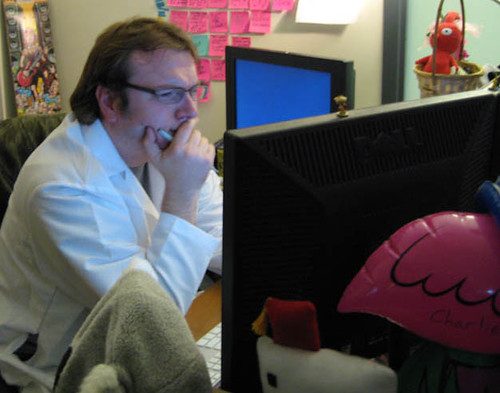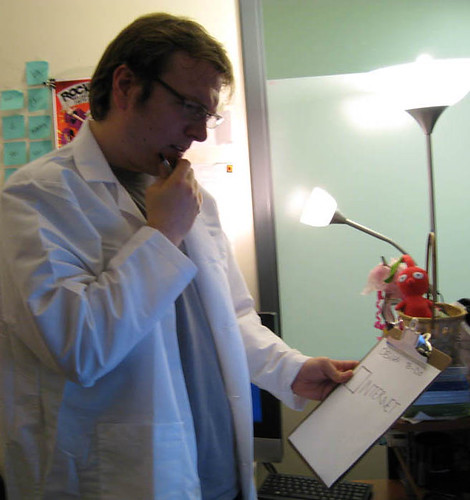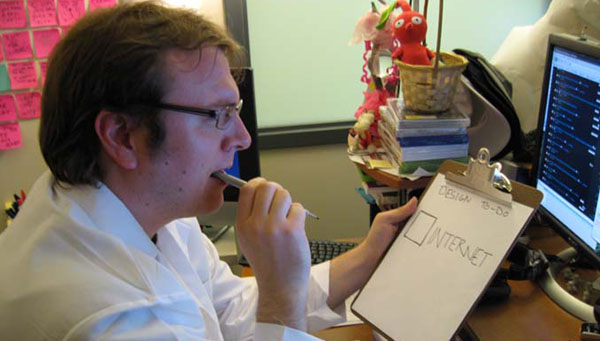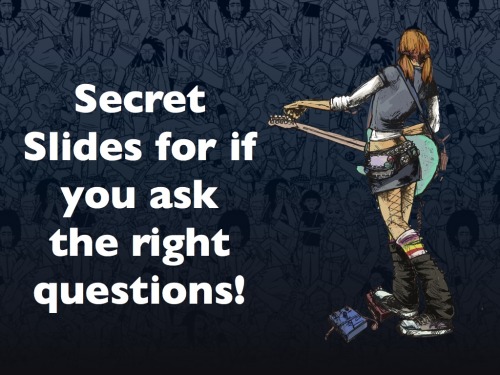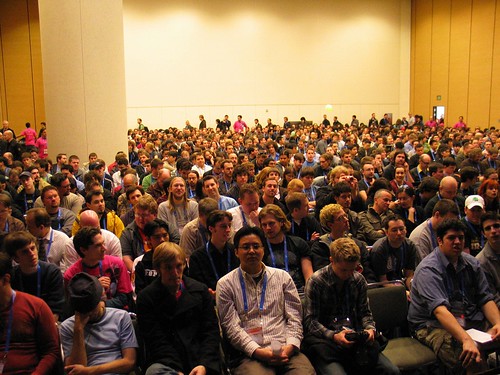I've been kicking around some emails with Nick Cummings basically giving job advice and answering questions about how I got into games, and I realised that it's probably good fodder to put up here and link people to whenever they have questions about how to get into the games industry.
Below are Nick's questions and my replies. I'll update this post whenever people ask me new questions.
What led you to get into game design? Was it what you expected it would be?
A near death experience and ladies.
Long story summarized: I caught Cerebral Malaria when I was five, almost
died. My present for not dying was an Amiga 1000, which I played while I
was recovering. I became a huge game nerd and played games and made small
games for ages. I started doing an IT degree, but hated talking about
Pascal and database structure.
At the time, I had an unrequited crush on an older American exchange
student, and was looking for excuses to fly over to the US in April
during break. I was also trying to figure out what to do with my life,
and I was curious about games and had dabbled in making some games in
high school. GDC (then CGDC) was around that time, and as a huge game
nerd I'd always wanted to know what goes into making games - so I
attended and had my mind exploded open by people talking about the nuts
and bolts of making games. It was exactly the kind of thing I liked
doing, and I knew then that I wanted to make games as a job.
I then spent 6 months making mods for Quake and applying everywhere, and
was picked up by a company called Auran Games (they did Dark Reign, a
pretty good for its time RTS) as an Assistant Designer. It's exactly
what I expected post-GDC, and I still love making games.
What do you love/hate about game design?
I love making things that are fun to interact with. That "critical mass"
point where the game is fun for the first time is an amazing feeling.
I hate it when I miss something that makes a game not perfect when it's
released. Having "Continue" and "Choose Rocker" on the RB1 matchmaking
screen is a great example of this - it was originally just "Continue",
and we snuck in "Choose Rocker" at the last minute without thinking of
the ramifications of having another state-changing button on the screen.
That one stung a lot, since it was one change with a huge ripple effect
that made it really hard to get into bands. Needless to say, first thing
we fixed in RB2 development.
How much variety is there from company to company (or game to game) in what a game designer actually does?
It's massively different not just from genre to genre, but also from
company to company. It's one of the main reasons that the current
courses on game design aren't great for learning how to design games -
they teach you a toolset, but not the instinct that you need across
games and companies.
A good example is going from a Senior at Pandemic (where my time was 30%
open world level design, 60% systems scripting and iteration, 10%
narrative and specwork), to consulting at Irrational (40% UI design
consultant, 60% audio implementation), to a Senior at Harmonix (50%
specwork, 30% scripting and balancing, 20% UI), to a lead (50%
mentoring/managing, 20% specwork, 20% iteration oversight, 10% vision
shenanigans)
From your experience, what skills and interests are beneficial for a game designer to have?
There's a bunch of things.
- Communication skills are key, since you're either trying to describe
a system to other team members, or communicate an experience to a player
through level design.
- Being able to disassemble and reassemble why you like or hate
something is also important. A bunch of iteration skill is in
identifying what's wrong, and plotting a solution to fix it.
- Secondary skills in programming and/or art are always useful. They
don't have to be at the level of "I can ship a game", but enough so that
you can hang yourself always comes in handy.
What advice would you give to somebody who's potentially interested in a career in game design?
Make games.
Seriously, the best way to show that you understand the basics of game
development is to go and make a mod for an existing game, or make a
flash game, or generally just try and complete something and show that
you've gone through the process. I'm more impressed by a game doing
something cool than I am any amount of university.
Can you elaborate a bit on some of the terminology you used to describe the things a designer does? (Specwork and iteration in particular)
So, there's a bunch of things that designers do, but they all vary from company to company.
The common ones involve coming up with a proposal for how to implement a system or a level, and documenting out exactly what you're planning to do. In the olden days of design, this would be part of a huge monolithic Game Design Document that was like 90 pages long and had everything about the game.
The thing designers learned about a decade ago is that nobody reads a 90 page document - the only benefit is to show how awesome you are at typing things. People on the team would print out the 90 page doc a month into the project, throw it on their desk, then reference that printed out document instead of viewing the latest document.
This spawned smaller more concise documentation called specifications, or specs for short. These are 2-3 page documents with clear goals at the start, and easily digestable information for what the system is and how it should be implemented. It's also easy to track changes between revisions too, since they usually live in a hyperlinked form like a wiki and you can track their individual changes.
So, you write your spec, sign off on it, then put it in the game. Unless you're inhuman, your design won't be perfect the first time. The process for going from that first revision to the final thing you ship is called "iteration" - which is basically making changes and course correcting until you come up with something perfect.
What was it like making your first mods? Was it much of a struggle? Where did you look to for inspiration and ideas?
Making my first mods was pretty cool. It was a little bit of a struggle as my programming knowledge was a little weak back then, but it was easy to cobble together and infer things from other mods and make your own unique thing.
The biggest help was just having a community of developers that you could share information with and get answers to questions from. There was an awesome Quake 1 community that I learned a lot from, and there are more places like that now for things like XNA, Unreal and Source that I'd totally recommend people check out.
And just for the hell of it: What are some of your favorite games, and why?
Favourite Game that nobody has head of: Midwinter II, by Mike Singleton. I played this on the Amiga back in the early '90s and it blew my mind. It was essentially a huge sandbox with loads of vehicles, open ended missions, a strategy metagame campaign tree, metric-based minigames, and pretty much everything you'd want in a sandbox game to get narrative consequences across, but ten years before GTA coined the "sandbox" term.
Besides that, I'm a big fan of a lot of the classics. The first commercial game I played was Winter Games by Epyx, which made me want to make awesome party games that everyone could have fun with. LucasArts adventure games shaped (warped?) my sense of humor very early on, and made me want to make funny games. Super Mario World was the perfection of platform gaming for me, and just oozes perfect balance and Miyamoto accessibility on multiple levels. I lost a lot of time playing through the scalable missions in Goldeneye, and I still go back to it from time to time. I play Peggle like it's free crack. I grew up in an aviation family, so I'll fire up X-Plane now and then to mess around with taking off and landing planes, but that's more towards the simulation rather than gameplay side of things.
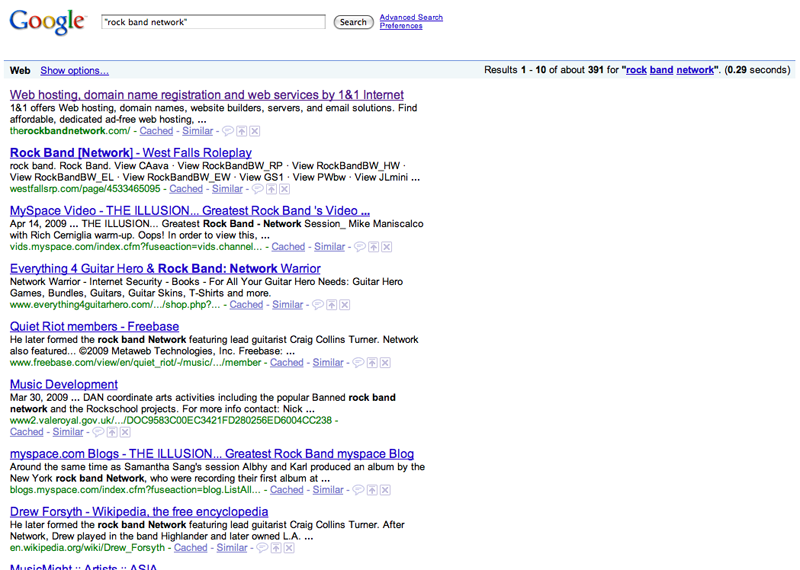
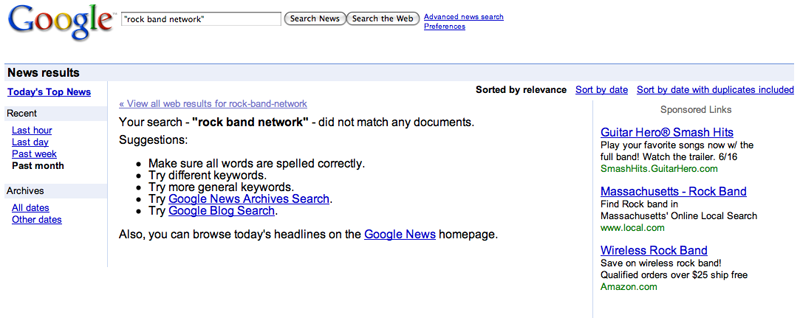

 Brian Chan
Brian Chan


